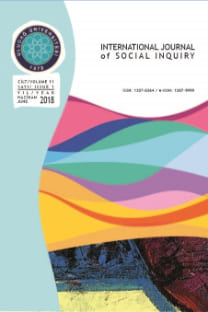The Role of Political Youth Movements in the Democratisation Process of the Contemporary Russia
The Role of Political Youth Movements in the Democratisation Process of the Contemporary Russia
This study aims to analyse the role of political youth movements in contemporary Russia. The Russian political youth movements can be broadly divided into two categories: ‘’Pro-Kremlin’’ and ‘’Opposition groups’’. Moreover, most of the political parties in the Duma have youth wings. Recent studies show that most of the young people in Russia do not participate in elections. On the other hand, over the past decade, some of the youth movements start to use nonviolent methods of resistance against autocratic regime. Thousands of young people demand political change and take part of the demonstrations. This paper will focus on the implications of current political processes for youth politics in contemporary Russian political culture. It will try to figure out the main ‘’strengths and weakness’’ of these groups in the democratisation process of the contemporary Russia.
Keywords:
Youth Movements, Russia, Democratization, Political Culture Power.,
___
- Braungart, Richard G. and Margaret M. Braungart. 1986. “Youth Problems and Politics in the 1980s: Some Multinational Comparisons’’International Sociology, 1, (December 1986).
- Gallup International, Voice of the People Survey
- Gene Sharp. 2011. Sharp’s Dictionary of Power and Struggle. Oxford University Press.
- Public Opinion Foundation (FOM) Survey on 17-18 May 2007
- Yuri Levada Analytic Center Survey about ‘’Nashi’’ on 21-24 November 2007
- Russian Public Opinion Research Center (VCIOM) on 6-7 October 2007
- ISSN: 1307-8364
- Yayın Aralığı: Yılda 2 Sayı
- Başlangıç: 2008
- Yayıncı: BURSA ULUDAĞ ÜNİVERSİTESİ > SOSYAL BİLİMLER ENSTİTÜSÜ
Sayıdaki Diğer Makaleler
The Convergence or Divergence of Pilgrimage and Tourism in Modern China
Barbied Dreams, Barbied Lives: On our backs, in the attics of our memories, on the shelves
The Role of Political Youth Movements in the Democratisation Process of the Contemporary Russia
Religion and Politics In A Sociological Perspective: A Comparison Between the Usa and France
Preparing Children from Disadvantaged Communities for School: Recent Australian Research
